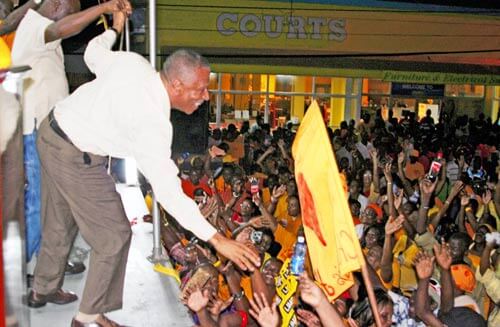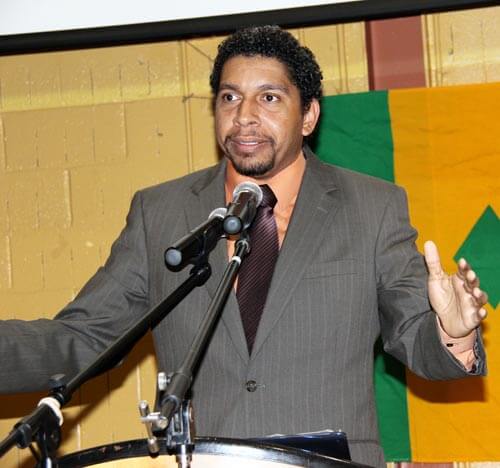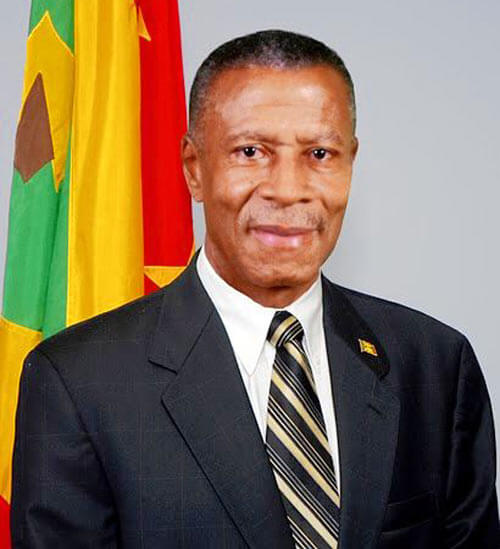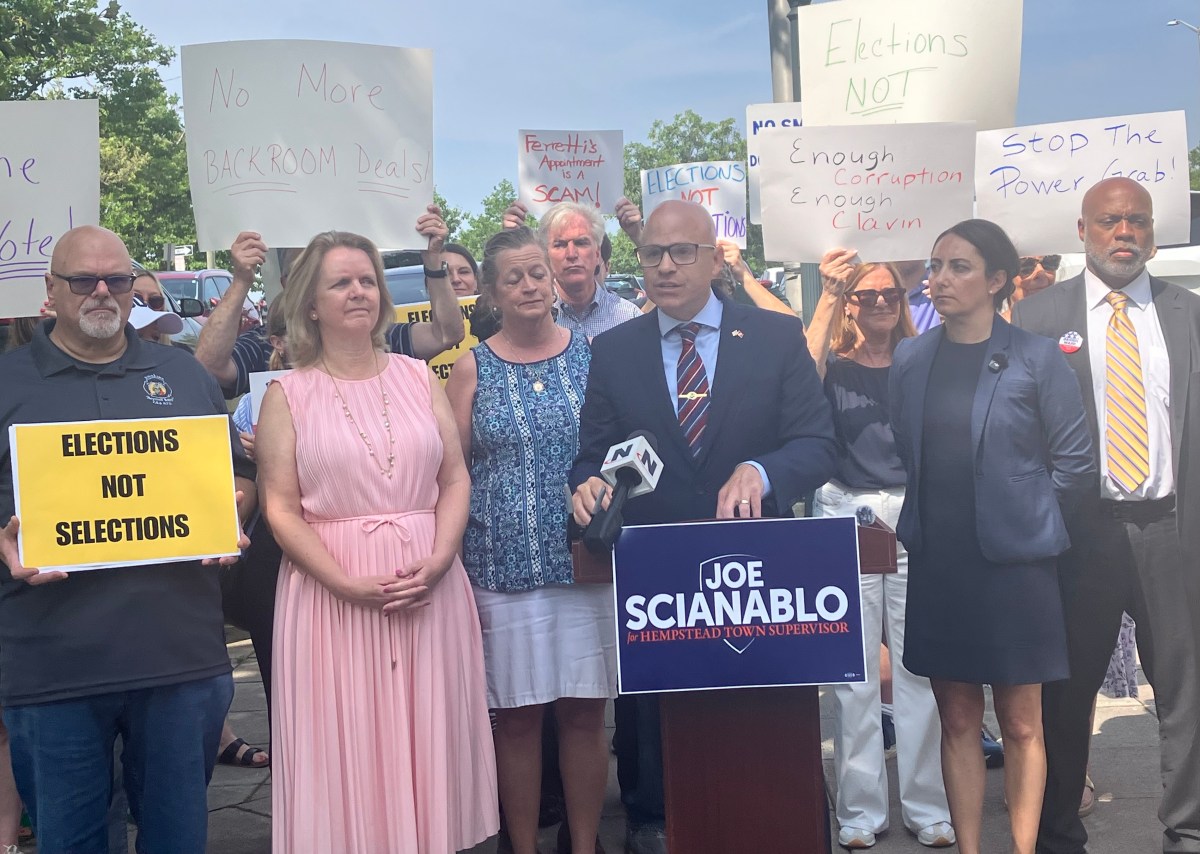Former State Comptroller and erstwhile gubernatorial candidate, H. Carl McCall, has received SUNY Downstate Medical Center’s first Dr. Martin Luther King, Jr., Leadership Award.
The medical center and University Hospital of Brooklyn bestowed the prestigious award on McCall, the current chairman of the SUNY Board of Trustees, at a special ceremony in commemoration of Martin Luther King Day, on Jan. 12.
The award, sponsored by the medical center’s Office of Diversity and Inclusion, recognizes individuals who have an “exemplary record of service in government, business, and education, and who have a distinguished record in molding consensus to shape solutions to important societal challenges.”
“It’s a privilege to share this celebration of the life and dream of Dr. King with men and women who are in many ways caretakers of his legacy;” McCall said at a recent SUNY Downstate ceremony in his honor attended by President Dr. John LaRosa, hospital CEO Debra Carey and Kevin Antoine, Esq., chief diversity officer.
“Dr. King implored all of us to uplift the least of us. He saw poverty and social inequality not as inevitable consequences of free market conventions but as blights on the American soul, matters of simple justice,” McCall added.
“Decades after his passing, the impact of poverty and inequality are sharply painfully apart in all facets of American life, especially when it comes to issues of health. It is healthcare professionals like you, and community institutions like SUNY Downstate that are working to fill an urgent need,” he continued.
“Yes, Dr. King’s dream lives here at SUNY Downstate. So it means a great deal for me to be recognized by those who exemplify this compassion to good healthcare,” McCall said.
In telling his audience “something about Dr. King and his influence” on him, on Downstate Medical Center, “and what he did for so many of us,” McCall said it was an event that ended up on the front page of the New York Times on July 23, 1963.
He said he and 200 picketers were arrested that day in a demonstration, at Downstate Medical Center, for minority jobs.
McCall said then Gov. Nelson Rockefeller, who created the SUNY system, “was putting a lot of money to the development and the expansion of the system.
“He committed millions of dollars to the construction of new facilities here at Downstate Medical Center. Maybe, this building we’re in today was one of those,” he said.
“The problem was that spending millions of tax-payer dollars, right here in Brooklyn, in the midst of a minority community, there was not one African-American or Latino worker on the site here at Downstate Medical Center,” he added.
“So a group of people from a group called Brooklyn CORE (the Congress of Racial Equality), they came here and they demonstrated. They picketed, they walked around with signs saying we want jobs, we want economic opportunity. Nobody paid any attention,” he added.
“So, they reached out to the ministers and asked the ministers to come and help. So I was the person who had to bring together the ministers. So I gathered some ministers, we came here, and we walked around and we picketed, and we had signs. We said we want jobs, nobody paid any attention.
“So that night, we had a meeting at Bethany Baptist Church, and we said, ‘What shall we do to have some impact to make some change here?’ and we talked about the things that Martin Luther King and other ministers were doing in the South,” continued McCall to rapt attention.
“So we came back the next day, on the 23rd of June and, instead of walking around and picketing, we sat down. We sat down in the entrance to this construction site. We didn’t let any trucks in. We didn’t let any workers in. We stopped the work. We said, ‘If we can’t work here, nobody’s going to work here,” he said. “So the police came, they picked us up. They arrested 200 people. The largest mass arrest they had in years, and we went off to jail. I went off to jail. But we felt that’s what we had to do.”
As a result, McCall said, in “a couple of days,” Gov. Rockefeller called and said “Let’s sit down and talk.”
After meeting with the governor, McCall said “immediately some people were put to work here.
“But, more importantly, we formed an organization called JOB (Job Opportunities for Brooklyn) to begin to train people to prepare them to take the test that the unions were using to exclude them from participation in the work force,” he said. “And we trained people who eventually got jobs.”
McCall said JOB started a movement that soon replicated across the country.
“So that’s what Dr. King did for me. That’s what he did for Downstate. This is what he did for Brooklyn,” he said.


















